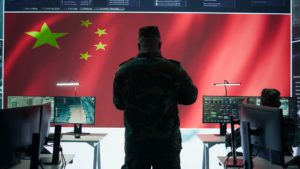Chinese scientists achieved a technological milestone by factoring a tiny 50-bit integer using a Quantum computer. Chinese researchers have recently developed Quantum computing, focusing on cryptography (the study of secure communication). This cutting-edge technology processes data in ways that conventional computers cannot. It can handle difficult issues more quickly, including cracking encryption, which depends on difficult arithmetic problems like factoring big prime numbers (used in RSA encryption).
Nonetheless, the truth is more complex, despite the sensationalist headlines portraying it as a significant development endangering contemporary encryption methods used in the military, finance, and other sectors.
It will take a long time for such computers to crack military-grade encryption.
To remain ahead of potential threats, experts are already working on post-quantum cryptography.
Therefore, even while this research advances the field of substantial computing, it is not a revolutionary discovery that would instantly melt down the encryption methods in use today. The true threat is still far off, and efforts are already being made to secure long-term security by developing Quantum-resistant encryption.
According to the report,
“Chinese researchers claim to have made a major breakthrough in the field by successfully breaking some well-known encryption techniques with such computer. The security systems that are commonly active in crucial sectors like the military and banking are seriously vulnerable to this finding. The researchers, under the direction of Shanghai University’s Wang Chao, employed a D-Wave Systems Quantum computer to target the Present, Gift-64, and Rectangle encryption algorithms. These algorithms are a component of the foundation for advanced encryption standards (AES), such as AES-256, which are frequently referred to as military-grade security. General-purpose Quantum computers are still in the early stages of development and do not yet directly threaten contemporary cryptography.”
Lead researcher Wang Chao, Shanghai University stated in the paper:
“This is the first time that multiple full-scale SPN-structured algorithms currently in use have faced a real and substantial threat from a real Quantum computer. Through this exploration, it is expected to establish a computing architecture that combines artificial intelligence algorithms with Quantum effects and mathematical methods in the future.
The recently developed method uses a hybrid strategy that blends classical mathematical procedures with Quantum annealing. This computational breakthrough makes it possible to optimize solutions more quickly, which improves the Quantum computer’s capacity to break encryption.
Key Points of China hacking using Quantum computer

- Chinese researchers factored a 50-bit integer using a Quantum computer known as a Quantum annealer. This research points to gradual advancements rather than a direct threat to contemporary cryptographic systems such as RSA (widely utilized in secure communications and online banking).
- For a long time, it has been believed that encryption techniques like RSA and AES (Advanced Encryption Standard), which are used to protect anything from financial transactions to military data, may be threatened by Quantum computing. Quantum computers have the potential to destroy these systems if they become sufficiently powerful.
- RSA encryption depends on how hard it is to factor big integers. The difficulty of breaking the RSA key increases with its size, such as 2048 bits, and The Chinese team only factored in a meager 50-bit figure as of right now.
- Even while factoring small numbers is amazing, it is still far from being able to crack the much bigger numbers used in RSA encryption.
Why Doesn’t This Seem Like a Big Threat Right Now?

According to an article posted by Forbes, There are still restrictions on such computers. Widely used encryption systems would need to be substantially more sophisticated, requiring a large number of qubits (Quantum bits) and improved technology to break them. D-Waves and other modern computers are unable to decrypt big keys used in military-grade encryption.
Experts state that although Chinese researchers have made significant strides, we are still far from cracking banking or military encryption. For the time being, current RSA encryption is secure because it normally employs keys that are 2048 bits or bigger.
Dr. Erik Garcell, Classiq’s Head of Technical Marketing:
“Factoring a 50-bit number using a hybrid Quantum-classical approach is a far cry from breaking ‘military-grade encryption.'”
Overstretching like this is more detrimental than beneficial. Falsifying present capabilities as cracking military-grade encryption is not only untrue but also risks undermining the credibility of the field.

Jason Soroko, co-host of the Root Causes podcast and Senior Fellow at Sectigo:
“We are currently working with Quantum-resistant algorithms from the recent NIST standardization, and they are also resistant to Quantum annealing.”
Duncan Jones, Quantinuum’s Head of Cybersecurity:
“We should make use of common sense. You wouldn’t prioritize media attention if you were the Chinese military and you had just breached AES. Rather, you would make the most of your informational edge without disclosing that you have cracked a crucial worldwide cipher.”
Nonetheless, While there is slow but steady progress in quantum computing, RSA encryption security in practical applications is still unaffected. Scaling these methods to realistic key sizes still presents enormous problems.
It’s wise to keep up with real advancements in the industry as they happen. The key to navigating the future with caution and hope will be cooperation between scientists, industry, and governments, as well as a neutral, balanced approach that acknowledges both the potential and the limitations of quantum technology.













